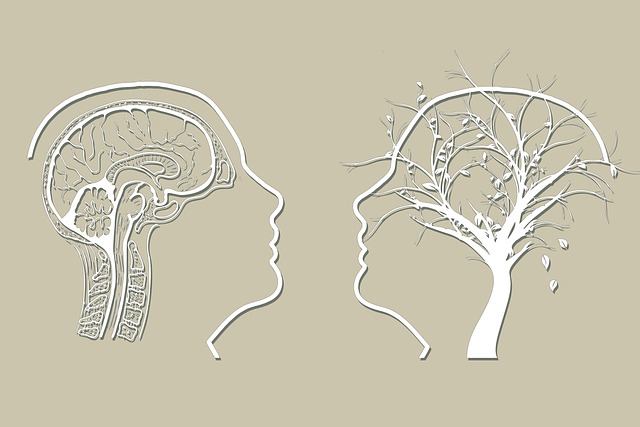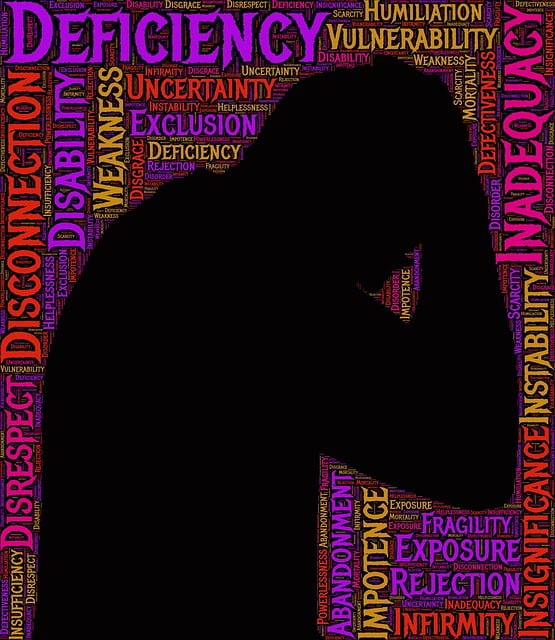Aurora Abuse Survivors Therapy (AAST) prioritizes risk assessment as a cornerstone of its holistic approach to healing from trauma, focusing on the unique needs of each survivor. Through comprehensive assessments, AAST identifies triggers and vulnerabilities, guiding therapists in creating secure, tailored environments. This process encompasses harm minimization strategies, including mindfulness practices and self-care routines, ensuring survivors' mental health is supported throughout their journey. Regular reviews, client feedback, and open dialogue further refine these strategies, incorporating initiatives like the Mental Wellness Podcast Series and Stress Management Workshops to foster resilience and empower survivors in their healing.
Risk assessment and harm minimization planning are vital components in creating safe environments, especially for survivors of abuse. This article explores these critical strategies, offering insights into their practical applications. We delve into the foundational concept of risk assessment through the lens of Aurora Abuse Survivors Therapy, a pioneering approach to harm minimization. Key components of an effective plan are outlined, along with implementation steps and continuous evaluation methods, providing essential tools for supporting survivors’ well-being.
- Understanding Risk Assessment: A Cornerstone of Safe Environments
- Aurora Abuse Survivors Therapy: Approaching Harm Minimization
- Key Components of a Comprehensive Risk Minimization Plan
- Implementation and Continuous Evaluation for Effective Support
Understanding Risk Assessment: A Cornerstone of Safe Environments

Risk assessment is a fundamental process in creating safe and supportive environments, especially for Aurora abuse survivors seeking therapy. It involves meticulously evaluating potential hazards and dangers within a given context, enabling professionals to take proactive measures to safeguard individuals at risk. By thoroughly understanding the unique challenges faced by trauma survivors, therapists can tailor their approach to address specific triggers and create a secure space conducive to healing.
This assessment goes beyond merely identifying risks; it empowers practitioners to implement effective harm minimization strategies. Through structured evaluation, they can identify vulnerable populations, anticipate possible outcomes, and develop comprehensive plans to mitigate risks. For instance, incorporating mindfulness meditation and self-care routine development into therapy can provide anxiety relief and promote better mental health for survivors navigating their healing journey, ensuring a holistic approach that addresses both the mind and body.
Aurora Abuse Survivors Therapy: Approaching Harm Minimization

Aurora Abuse Survivors Therapy (AAST) takes a nuanced approach to harm minimization, focusing on the holistic emotional well-being promotion techniques for survivors. By combining specialized counseling and innovative support systems, AAST aims to create a safe space where individuals can begin their journey towards healing. Through tailored interventions, they address the multifaceted needs of survivors, ensuring they receive comprehensive care that respects their unique experiences.
The organization also recognizes the power of public awareness campaigns development and mental health education programs design in fostering a culture of understanding and support. By educating communities on the realities of abuse and promoting early intervention strategies, AAST strives to prevent further harm and empower individuals to take charge of their mental health. These efforts contribute to creating a more compassionate society that prioritizes the emotional well-being of all its members.
Key Components of a Comprehensive Risk Minimization Plan
A comprehensive risk minimization plan for Aurora abuse survivors’ therapy should encompass several crucial components designed to ensure safety and support. First, a detailed risk assessment is vital, identifying potential hazards and triggers specific to each survivor’s experience. This includes recognizing past traumas, current stressors, and environmental factors that might exacerbate vulnerability. By thoroughly understanding these risks, therapists can tailor interventions effectively.
Additionally, the plan should include crisis management strategies tailored to individual needs. This involves establishing clear communication channels, developing coping mechanisms for distressing emotions, and providing access to immediate support resources. Incorporating evidence-based mental health awareness and stress reduction methods, such as mindfulness techniques, can empower survivors with tools to manage their well-being. Boosting confidence through therapeutic processes is equally important, fostering resilience and a sense of agency in navigating life after trauma.
Implementation and Continuous Evaluation for Effective Support

Implementing effective harm minimization strategies requires a dynamic approach where support services are continuously evaluated and adapted to meet the evolving needs of Aurora abuse survivors. This process involves regular reviews of existing protocols, feedback collection from both clients and therapists, and an open dialogue about what works best for each individual’s journey towards healing. By fostering an environment of ongoing learning, service providers can ensure that their practices remain evidence-based and responsive to the unique challenges faced by those seeking therapy.
The Mental Wellness Podcast Series Production and Stress Management Workshops Organization play crucial roles in this continuous evaluation process. Podcasts, for example, can provide a platform for sharing success stories, offering practical tips on emotional regulation, and raising awareness about available resources. Similarly, workshops focused on stress management equip survivors with valuable tools to navigate their daily lives, promoting mental wellness and resilience. These initiatives not only empower individuals but also serve as a barometer for assessing the effectiveness of support systems within Aurora’s therapeutic framework.
Risk assessment and harm minimization planning, as exemplified by the innovative approaches at Aurora Abuse Survivors Therapy, are vital components in creating safe environments. By understanding risk assessment as a cornerstone and implementing comprehensive plans that include continuous evaluation, we can effectively support survivors and prevent further harm. This strategic approach ensures that resources are allocated efficiently, fostering an environment where recovery and resilience thrive.














